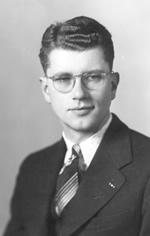1561 - 1604 Scripture: Psalm 119 Author of "Wohl denen, die da wandeln" in Evangelisches Gesangbuch Becker, Cornelius, son of Adrian Becker, merchant of Leipzig, was born at Leipzig, Oct. 24, 1561. After studying at the University, where he graduated 1584, he kept a private school till his appointment, in the beginning of 1588, as one of the masters of the St. Thomas School, a post he vacated in Sept., 1588. on being appointed diaconus at Rochlitz. In 1592 he became diaconus, and in 1594, pastor of the church of St. Nicholas, Leipzig; and subsequently Professor of Theology in the University, from which, in 1599, he received the degree of D.D. On account of false accusations he was deprived of his charge on June 5, 1601, but was vindicated and restored on Nov. 29 following. He died suddenly at Leipzig, May 25, 1604 (Koch, ii. 219-223; Allgemeine Deutsche Biographie, ii. 221). He wrote a few hymns, but his principal work was his version of the Psalter, 1602. The only version translated into English is:—
Der Herr ist mein getreuer Hirt, Dem ich mich ganz vertraue. [Ps. xxiii.] Appeared in S. Calvidus's Harmonia Cantionum Ecclesiasticarum, Leipzig, 1598, and then in Becker's Der Psalter Dauids Gesangweis, Leipzig, 1602. Thence in Wackernagel, v., p. 369, in 3 stanzas of 7 lines, entitled "The Good Shepherd." In Bunsen's Allgemeine Gesang-Buch, 1846, No. 2. It is translated as "My Shepherd is the Saviour dear," by Miss Dunn, 1857, p. 19. [Rev. James Mearns, M.A.]
-- John Julian, Dictionary of Hymnology (1907)
Cornelius Becker


 My Starred Hymns
My Starred Hymns





